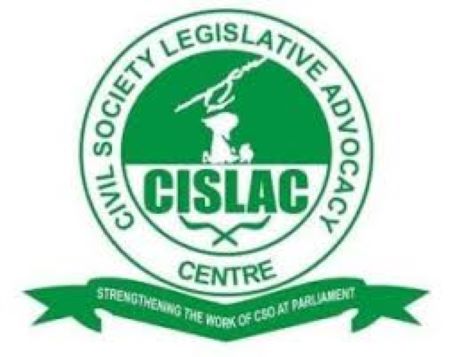The Civil Society Legislative Advocacy Centre (CISLAC) has raised serious concerns over President Bola Tinubu’s proposal to increase the 2025 budget from ₦49.7 trillion to ₦54.2 trillion. While acknowledging the reported additional revenues from key government agencies, the organization argues that the move is not only unprecedented but could also be unconstitutional.
In a statement signed by its Executive Director, Auwal Ibrahim Musa (Rafsanjani), CISLAC cited Section 81(4) of the 1999 Constitution (as amended), which mandates that any extra spending beyond what was initially approved must go through a supplementary budget process. The organization insists that the president’s approach—informing the National Assembly of the increase via a letter rather than a formal supplementary bill—sidesteps due process and raises serious legal and procedural issues.
Rafsanjani, who also leads Transparency International Nigeria, criticized the government’s handling of the budget increase, warning that it undermines the integrity of the budgetary process and sets a dangerous precedent for fiscal governance.
CISLAC further questioned why the additional revenues were not factored into the original budget, calling it a sign of poor fiscal planning. The group also expressed concerns over the lack of prior consultation with the National Assembly before making such a significant adjustment, arguing that bypassing legislative oversight weakens the country’s system of checks and balances.
“This pattern of unilateral decision-making is becoming a recurring issue,” the statement noted, referencing the administration’s delay in appointing ministers beyond the constitutional timeline. Such governance lapses, CISLAC warned, could erode democratic principles and transparency in public finance management.
The organization also highlighted Nigeria’s growing debt burden, pointing out that debt servicing costs have skyrocketed from ₦712 billion in 2014 to ₦16.32 trillion in 2025. It warned that many debt-funded projects, such as the Kaduna-Abuja Highway, remain incomplete or abandoned.
As a more sustainable alternative, CISLAC urged the government to focus on maximizing internally generated revenue and funding smaller, realistic projects that can be completed efficiently without excessive borrowing.
Beyond the budget increase, CISLAC flagged concerns about allocations to defunct or non-existent agencies, calling it a waste of public funds that undermines the integrity of the entire budget process. The organization urged lawmakers to exercise their constitutional duty by thoroughly scrutinizing budgetary provisions and ensuring they align with national priorities.
“The National Assembly must rigorously oversee federal expenditures and prevent any potential misuse of funds,” the statement emphasized. It also called on the executive to prioritize transparency, adhere to constitutional provisions, and engage in meaningful consultations before making major fiscal decisions.
While supporting initiatives aimed at national development and economic growth, CISLAC stressed that such efforts must be rooted in constitutional legality, fiscal responsibility, and inclusive governance.
Given the unprecedented nature of running two concurrent budgets, the organization strongly urged the executive to reconsider its approach and strictly follow due process. It also called on the National Assembly to uphold principles of accountability and democratic governance in the budgetary process.
CISLAC reaffirmed its commitment to advocating for transparency, accountability, and participatory governance in Nigeria.



1 Comment
This is over using of immunity and public fund. Can’t the so called president give us any coherrent reason for the increasement of budget he signed into law? Let’s stand am claim our rights in other not to be used by any government to enrich their pocket all in the name of budget which we had not even see any accomplished budget in the country. May allah help us out